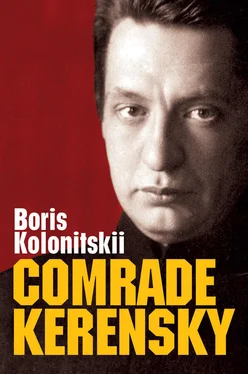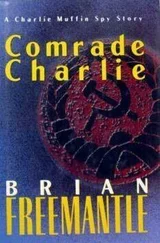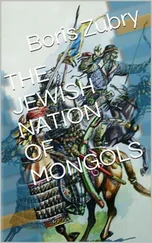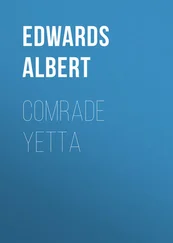Armand stoutly defends her political Chosen One from the attacks of his opponents, including some in the ranks of the Socialist Revolutionary Party, who, in her opinion, have delivered ‘the unkindest cut’. If the aim of earlier biographers had been to enhance Kerensky’s influence, Armand’s priority is to put down those questioning the Leader’s authority. She does not deny he has made mistakes but insists on his right to have made them: ‘How could a great man not make great mistakes when he is so in love, with a passion born of despair, with his doomed homeland, and who is so infinitely alone?’ 41
The portrait Armand sketches of Kerensky affirms his reputation as an ardent revolutionary. ‘He was tireless in his work, appearing everywhere there was a need for conciliation, soothing, pacifying. Pale, joyfully intense, he was often totally overcome by fatigue and passionate emotion. On more than one occasion he blacked out at the end of a speech. He is ablaze, incandescent.’ 42
As we see, some of Kerensky’s first biographers were very talented. The names of several are familiar to literary and academic historians. Armand and Kiriakov, Leonidov and Tan knew Kerensky personally and included fragments of reminiscence in their biographical essays. In writing their accounts of the life of the Leader they sometimes quote from published and unpublished documents, including (Kiriakov and Leonidov) materials from the police archives. They make use of the press of the revolutionary period and publish photographs from the Kerensky family archive. Some of them clearly enjoyed Kerensky’s confidence.
Most of these biographies were written in May–June 1917 when Kerensky, after being appointed minister of war, was preparing a military offensive. As we shall see, this was when the major elements of the political cult of the revolutionary Leader took shape. The popular biographies of Kerensky reflected that process.
Those primarily involved in creating these biographies of the Leader were neo-Narodniks, the Labourites [Trudoviks] and, above all, the Right Socialist Revolutionaries. The texts of Kiriakov and Armand reflect intra-party conflicts. They contain criticism of the Left Socialist Revolutionaries and even of some of the ‘centrists’ who had criticized Kerensky. Leonidov and Vysotsky depict their protagonist as a national Leader above party politics, and this is evident in their writing style.
The Kerensky biographies which appeared in 1917 are highly emotional. Their authors were not only seeking to provide the Leader with political support by using his past career as an instrument of legitimation; they also wanted to communicate a needful political emotion to their readers. The theme of love, of the strong, reciprocated love between the people and its Leader, is very much to the fore. Some of Kerensky’s biographers seem, indeed, to have been under his spell themselves.
We should not exaggerate the influence of these popular biographies on public opinion, but they are of interest in helping us to understand how Kerensky’s supporters set about building his image. The biographies reflect certain features of the political culture of the revolutionary period. They are a valuable source for studying efforts both to create the image of a new Leader of a new country and to develop a new rhetoric of political legitimation.
2 The youth of the Leader
Kiriakov saw the date of Kerensky’s birth as portentous. The history of the political struggle against the tsarist regime provided the background for his description of the childhood of the future champion of freedom.
Alexander Kerensky’s first breath (he was born on 22 April 1881) came just a week after some of the great champions of freedom for Russia – Sofiya Perovskaya, Andrey Zhelyabov, Timofey Mikhailov, Kibalchich and Rysakov – breathed their last, hanged by order of Alexander III on Semyonovskaya Square.
His first movements as a little child, his first babbled words, almost coincided with the last movement, the last mumbling of a cowed Russia. 43
Kiriakov also found significance in the place where Kerensky was born – Simbirsk – which played a role in how the hero chose his path in life. ‘The Volga brought this child not only “songs that sound like moaning” but also freedom-loving songs about the much admired folk hero Stenka Razin, whose famous cliff was near Simbirsk.’ 44
Readers have it explained to them that, from childhood, Kerensky was in the force field of memories of the people’s sufferings, of great uprisings that were rooted in his haunts, and that these memories were already influencing his outlook on the world.
Such a biography fitted into the canon of Narodnik description of the life of a hero. Kiriakov gives the backstory of the mutual love between Kerensky and Russia, emphasizing the place and time of the Leader’s birth. Other authors, however, did not write about Kerensky’s childhood and youth. ‘A. F. Kerensky’s personal life, like that of many giants of thinking and action, reveals a paucity of external events. He seemed to be saving himself for an immense task, in order to burn up all his energy and powers later, in the flames of the All-Russia conflagration. His biography is that of a typical Russian intellectual,’ declares the Odessan biographer. 45The very ordinariness of Kerensky’s early life, however, is turned to account in the propaganda and serves as a further foundation of the Leader’s authority. The ‘giant of thinking and action’ is initially indistinguishable from others, thereby stressing his democratic beginnings, his rootedness in the rank-and-file intelligentsia. It is only in the days of great tribulation that there becomes manifest the greatness of a Leader who has been building up his strength by spending his childhood in an ordinary milieu.
Kiriakov, quoting the testimony of the minister himself, tells the reader, ‘The first childhood memories of A. F. Kerensky, then a six-year-old child, are, in his own words, a vague memory of the unspoken horror that engulfed Simbirsk when people there learned of the execution of the son of the local supervisor of people’s schools, the student Alexander Ilyich Ulianov (brother of our ‘sealed carriage’ N. Lenin), for his involvement in a plot by the last members of People’s Will to assassinate Tsar Alexander III.’ 46(One cannot help recalling the Soviet biographies of Lenin which never failed to mention the fate of his brother as a decisive factor in the career of that leader.)
Not all his biographers made mention of Kerensky’s parents. Some reported that at the time of Alexander’s birth his father was the headmaster of the grammar school in Simbirsk. 47Bogoraz-Tan wrote, not entirely accurately: ‘His father … taught Russian language in Simbirsk and was later headmaster of a grammar school in Kazan.’ 48
Not one of Kerensky’s biographers during the revolution mentioned that, in 1887, his father, Fyodor Mikhailovich Kerensky, had been promoted to the status of full state councillor (the Civil Service equivalent of a general in the army), or that two years later he was further promoted to the post of chief inspector of schools in the territory of Turkestan. The father of the future minister had enjoyed a successful administrative career in the Ministry of Public Education, which was an inconvenience for anyone writing about the revolutionary biography of his son. 49(This too is reminiscent of the canonical Soviet biographies of Lenin, which kept quiet about the award to his father of the rank of full state councillor.)
Kerensky’s 1917 biographers did not write about his paternal forebears either. Like many intellectuals he came from a family of priests, a detail in his pedigree which would not have enhanced a politician’s standing during the revolution.
Читать дальше









